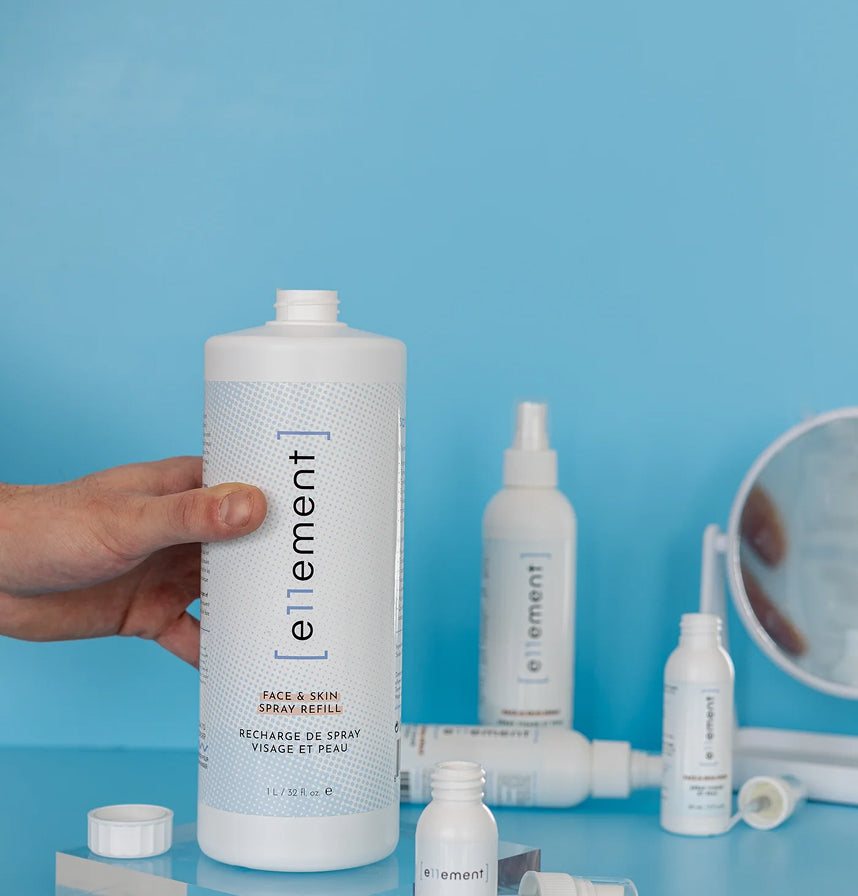Managing eczema can be challenging, especially for teens navigating skincare during the heat and humidity of summer. The rise in temperature, increased sweating, and exposure to allergens make summer an especially difficult season for those with sensitive skin. Fortunately, recent research and dermatological developments have brought attention to an effective solution: hypochlorous acid. Known for its antimicrobial and soothing properties, hypochlorous acid has emerged as a valuable option in the eczema care routine particularly for teens.
Understanding Summer Eczema in Teens
Summer often exacerbates eczema symptoms due to various environmental triggers. High humidity, excessive sweating, pool chemicals like chlorine, and outdoor allergens can all contribute to irritation and flare-ups.
What Is Eczema?
Eczema, or atopic dermatitis, is a chronic inflammatory skin condition. It often begins in childhood and may persist into adolescence or adulthood. Symptoms include dry, red, itchy patches that can become cracked and painful. In teens, eczema can also impact self-esteem and social interactions due to visible skin changes.

Why Summer Is Particularly Challenging
-
Sweating: Excess sweat can trap heat and irritants, leading to clogged pores and inflammation.
-
Allergens: Pollen and dust increase in summer, triggering immune responses that can worsen skin irritation.
-
UV Exposure: While limited sun exposure can be helpful, too much sunlight can lead to further dryness and inflammation.
-
Pool Chemicals: Chlorine and other disinfectants in swimming pools may dry out or irritate sensitive skin.
Managing these factors is essential for reducing eczema flare-ups. That’s where hypochlorous acid becomes especially relevant.
What Is Hypochlorous Acid?
Hypochlorous acid (HOCl) is a naturally occurring substance produced by the white blood cells in the human body. It plays a key role in the immune system by fighting infection, killing bacteria, and reducing inflammation.
In medical and skincare applications, hypochlorous acid is synthetically produced to mimic the body's natural version. It’s gentle on the skin, non-toxic, and does not lead to resistance like antibiotics can. This makes it a safe and effective solution for eczema care—especially for young, sensitive skin.
How Hypochlorous Acid Supports Eczema Relief in Teens
For teens struggling with eczema, especially during summer, hypochlorous acid offers a simple yet effective addition to daily skincare routines. Here's how it helps:
1. Reduces Bacterial Load on the Skin
Bacterial overgrowth, particularly from Staphylococcus aureus, is a common trigger for eczema flare-ups. Teens are often active and more exposed to sweat and outdoor environments, increasing the risk of bacterial accumulation.
Hypochlorous acid helps reduce harmful bacteria without disrupting the skin’s natural microbiome. This lowers the risk of infection and promotes healing of inflamed skin.
2. Soothes Inflammation and Redness
Eczema involves an inflammatory response that leads to swelling, redness, and itching. Hypochlorous acid acts as an anti-inflammatory agent, calming irritated skin and providing relief from itching a major concern during hot weather.
By addressing inflammation early, teens can avoid scratching, which otherwise leads to further skin damage or potential scarring.
3. Accelerates Healing of Irritated Skin
Because of its role in supporting the immune response, hypochlorous acid promotes faster skin recovery. For teens dealing with broken or scratched eczema patches, applying hypochlorous acid may speed up the healing process and reduce discomfort.
4. Safe for Daily Use
Unlike corticosteroids or harsh topical treatments, hypochlorous acid can be used regularly without thinning the skin or causing long-term side effects. This is particularly important for teens, whose skin is still developing and may be more vulnerable to aggressive treatments.
5. Lightweight and Non-Irritating Formula
Most hypochlorous acid sprays or solutions are water-based and fragrance-free. They don’t leave a residue or sting when applied. This makes them convenient for frequent use, especially after sweating, swimming, or sports activities common in summer.

Is Hypochlorous Acid Safe for Teens?
Yes, hypochlorous acid is safe for use on all skin types, including young and sensitive skin. It is often recommended by dermatologists for children and adolescents with eczema because it has minimal risk of irritation and no long-term side effects.
Parents and teens should, however, check the ingredient list to ensure no unnecessary additives are present. Opt for pharmaceutical-grade or dermatologist-approved formulations.
Other Tips for Managing Summer Eczema in Teens
While hypochlorous acid plays a supportive role, a comprehensive approach helps prevent and manage summer flare-ups.
1. Choose Breathable Fabrics
Cotton and other breathable fabrics help reduce sweating and skin irritation. Avoid tight or synthetic clothing, especially during outdoor activities.
2. Stay Hydrated
Dehydration can worsen dry skin. Teens should drink enough water, especially in the heat.
3. Shower After Swimming or Sweating
Rinse off sweat, chlorine, or saltwater as soon as possible, then reapply hypochlorous acid and moisturize.
4. Avoid Harsh Soaps and Fragrances
Use gentle, unscented products to reduce the risk of triggering eczema reactions.
5. Monitor Weather and Allergen Levels
Pollen and humidity levels can be tracked via weather apps. On high-pollen days, limit outdoor exposure and rinse off after returning indoors.
When to Consult a Dermatologist
If symptoms persist despite consistent care, including the use of hypochlorous acid, teens should visit a dermatologist. Persistent redness, infection, or worsening symptoms may require medical treatment. Dermatologists may combine hypochlorous acid with other therapies such as topical steroids or antihistamines based on individual needs.
Conclusion
Hypochlorous acid: A teen’s secret weapon for summer eczema this phrase holds true when considering the effectiveness, safety, and simplicity of this solution. It addresses the key challenges of summer eczema: inflammation, bacteria, and healing. With its natural compatibility with human skin and immune functions, hypochlorous acid has become an essential tool in managing eczema in teenagers.
By integrating hypochlorous acid into a teen's skincare routine, parents and caregivers can offer relief during the peak eczema season. When used alongside gentle skin care practices and proper summer habits, it can help maintain skin comfort, reduce flare-ups, and support long-term skin health.

















